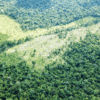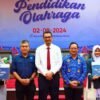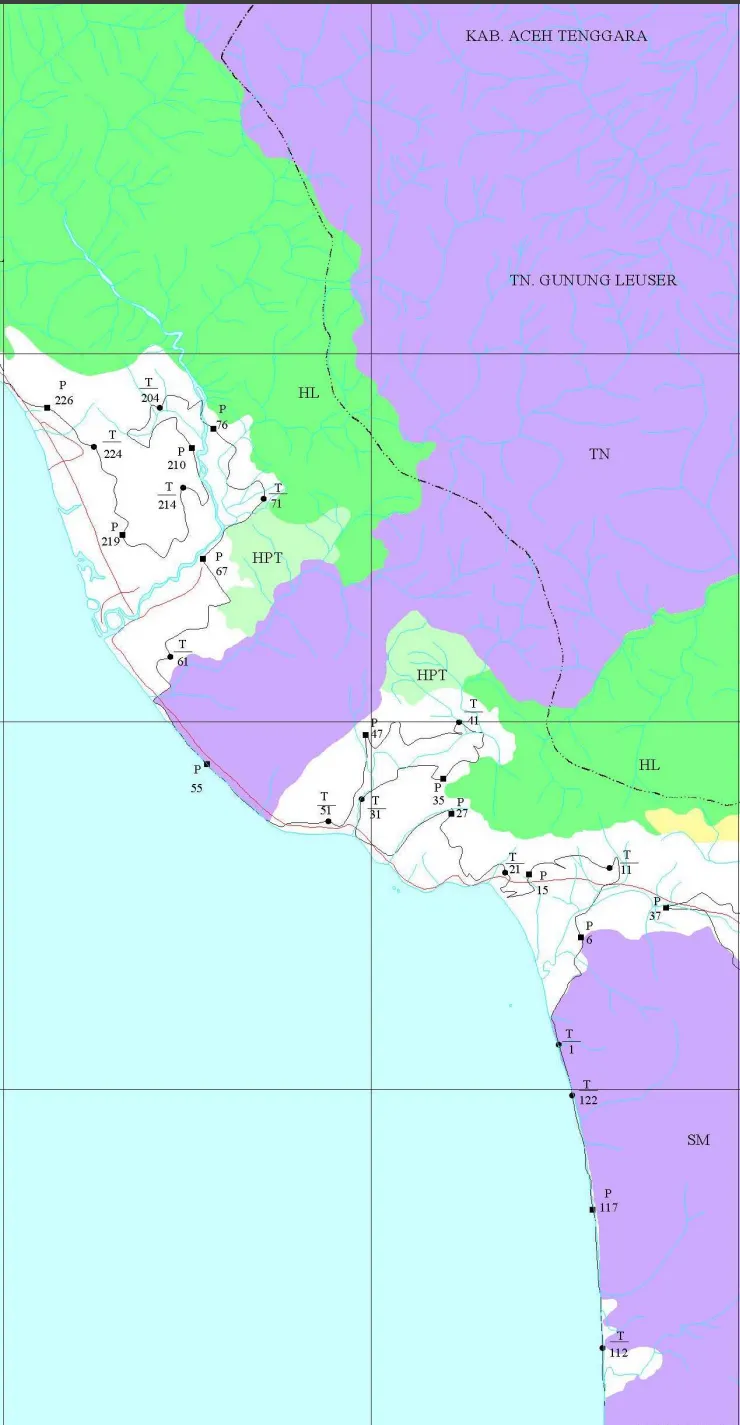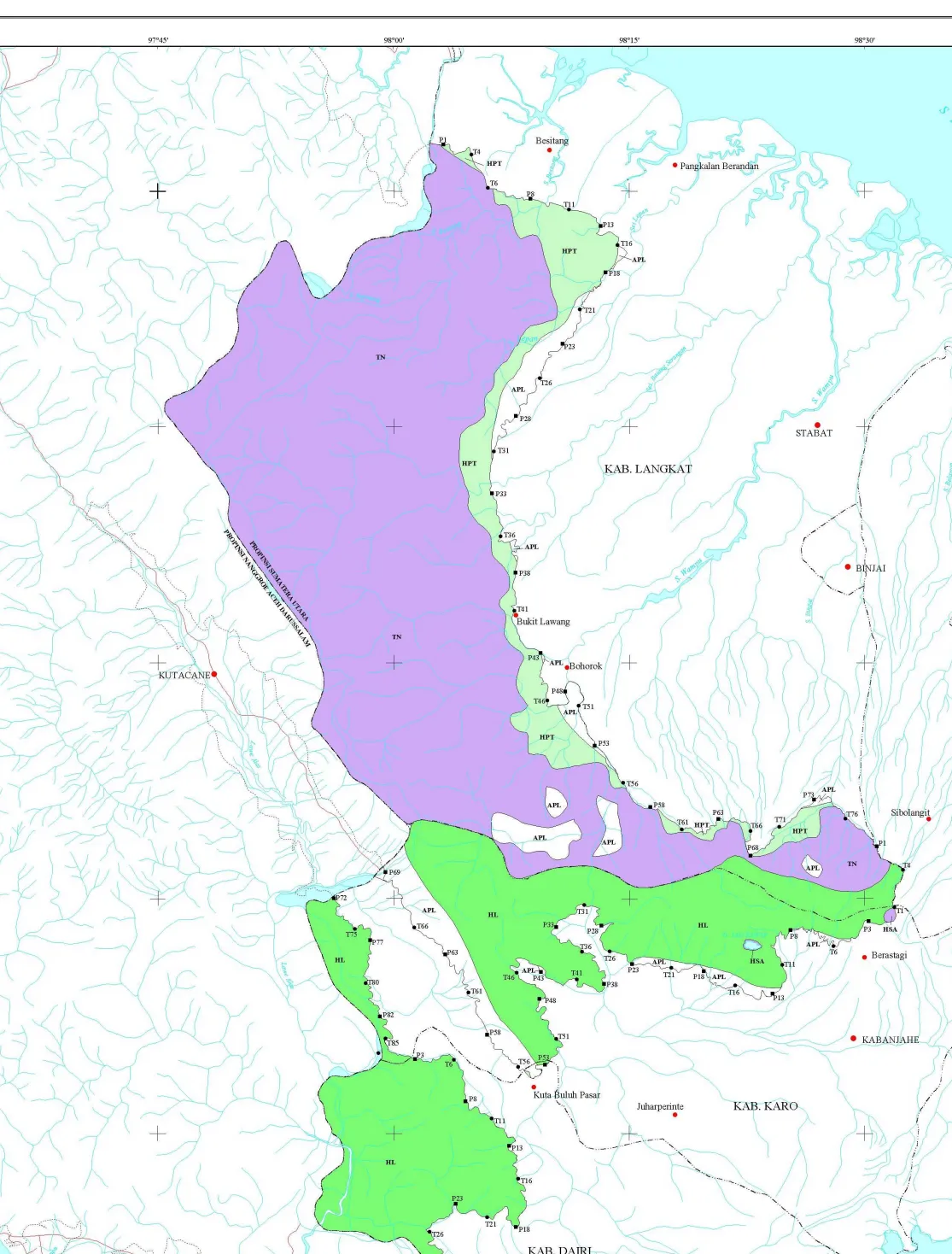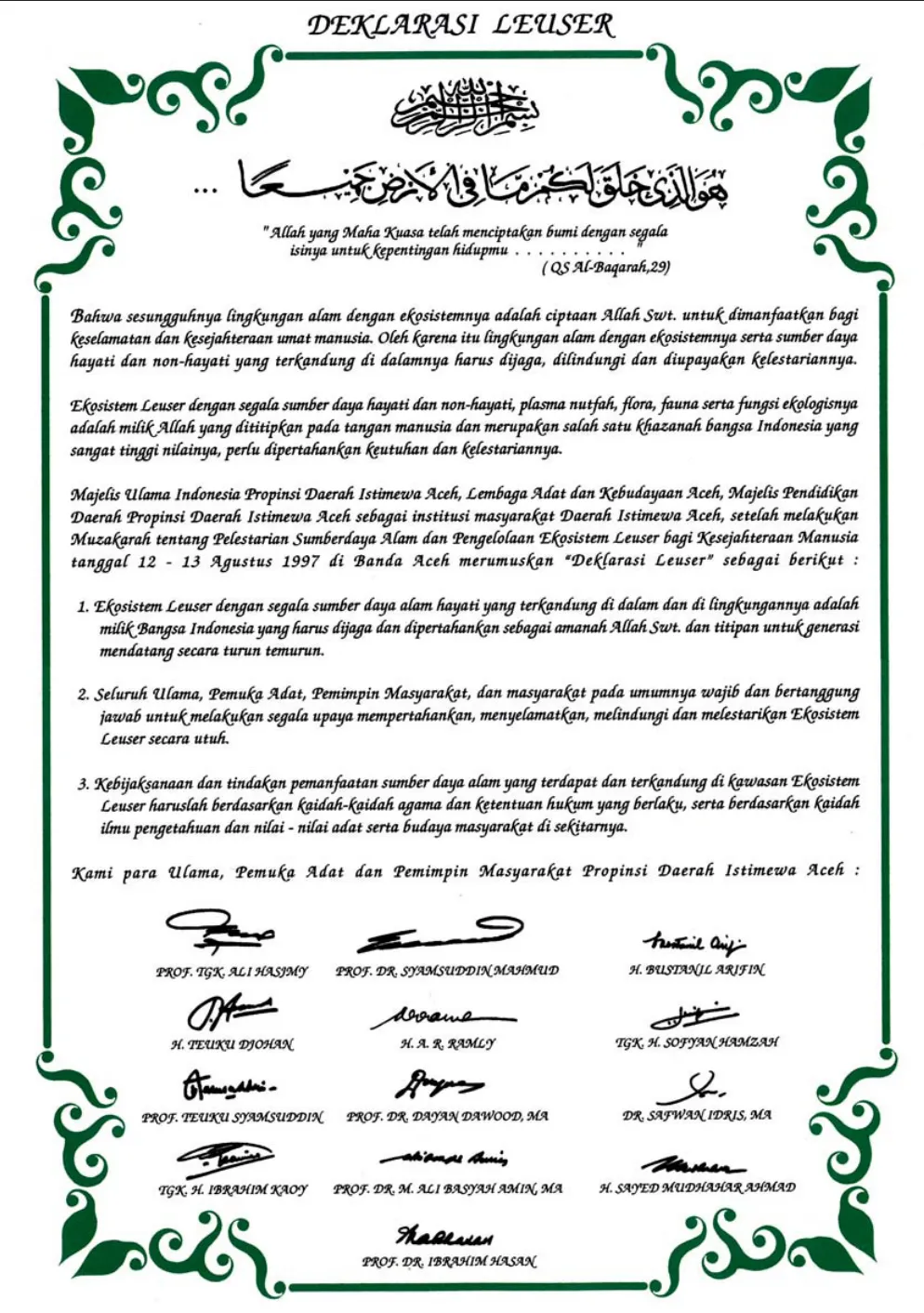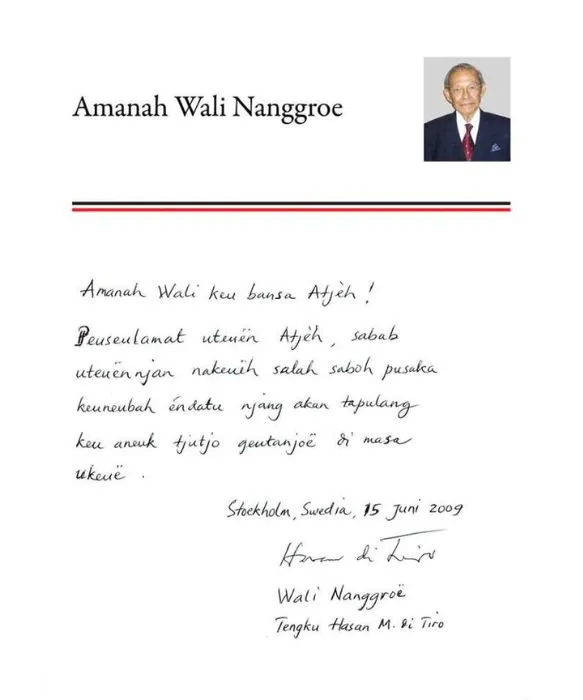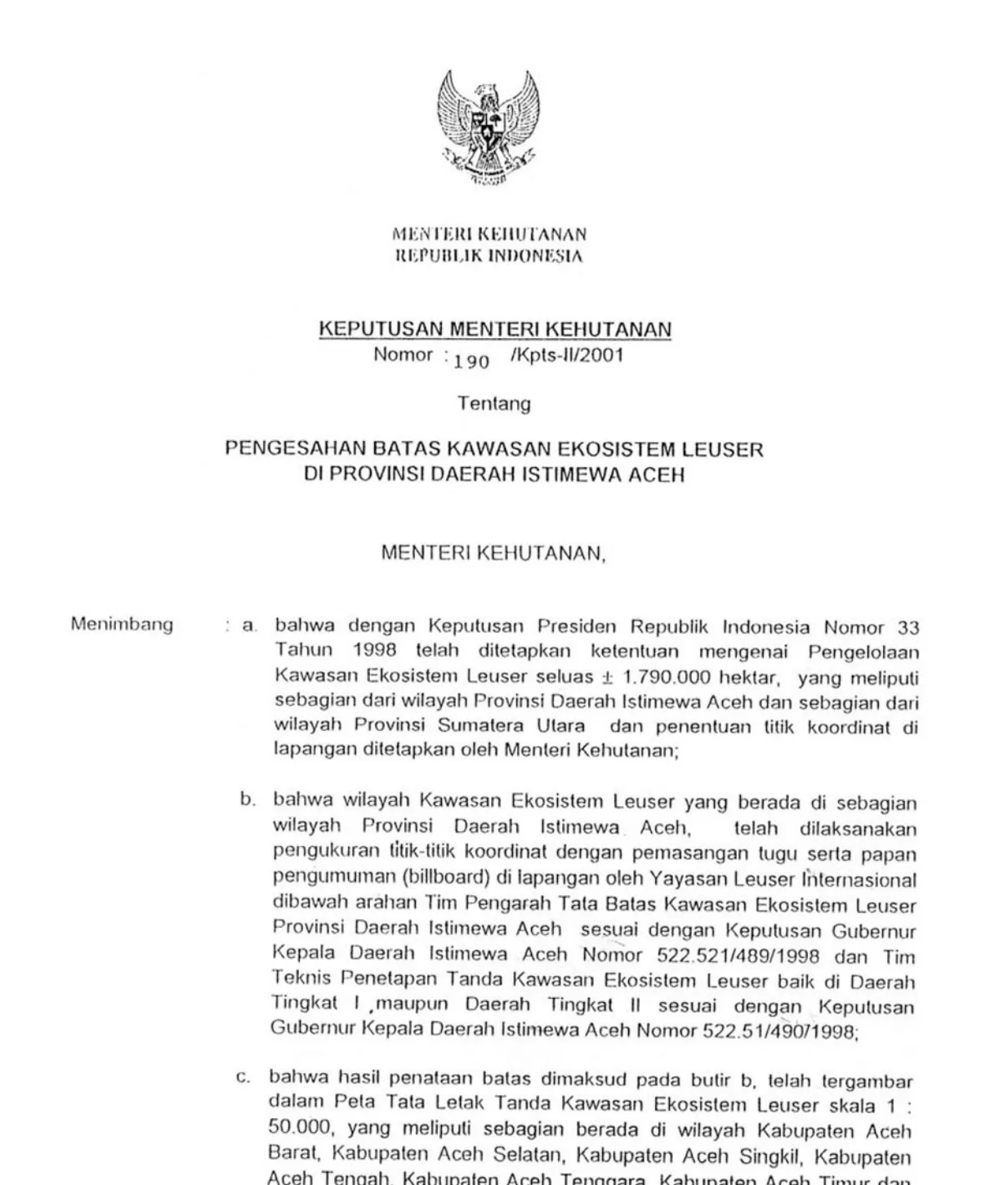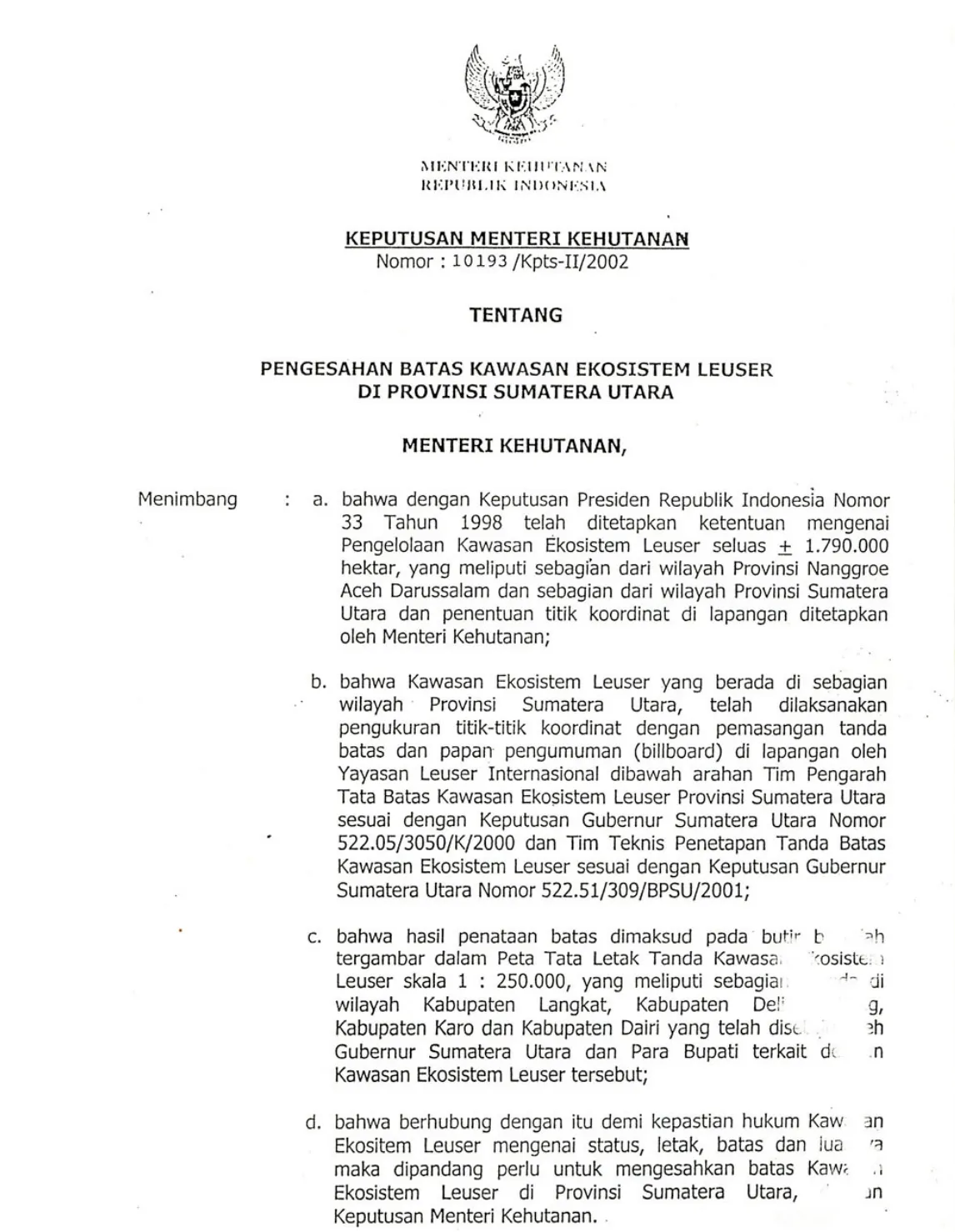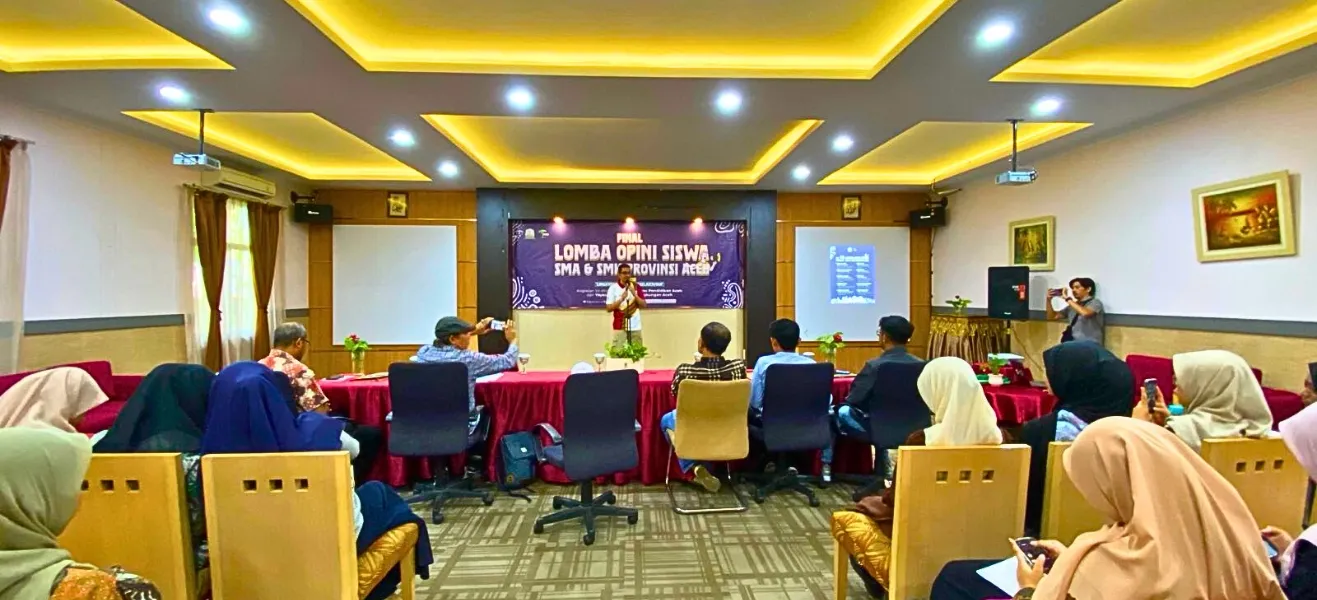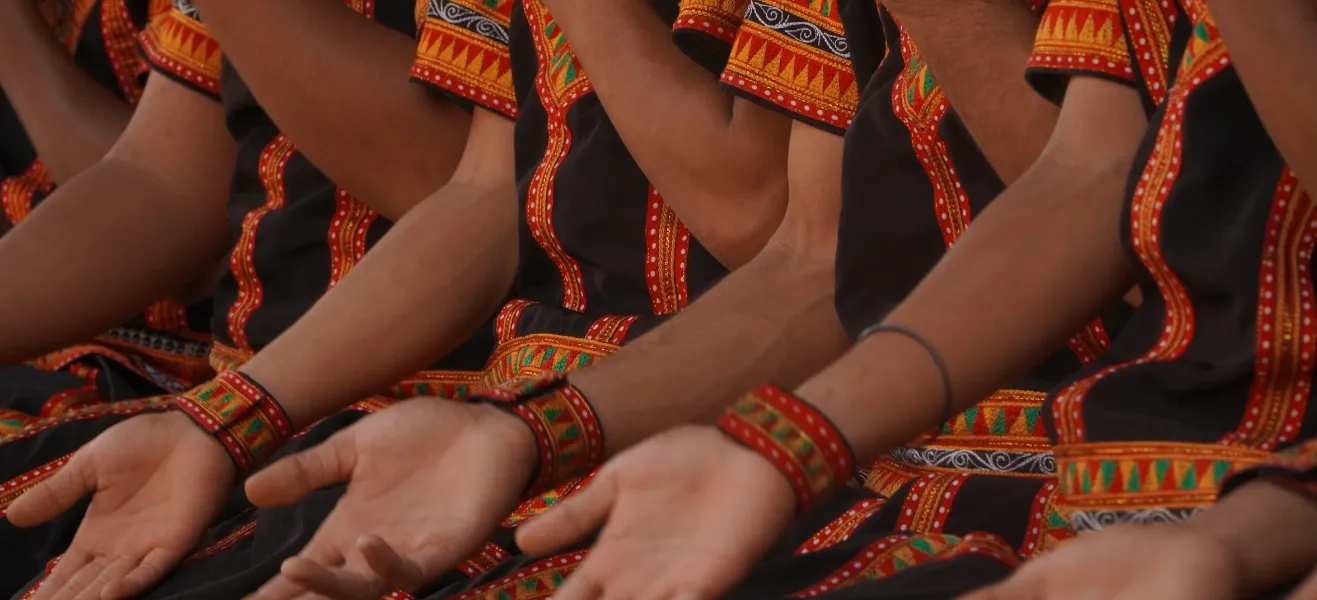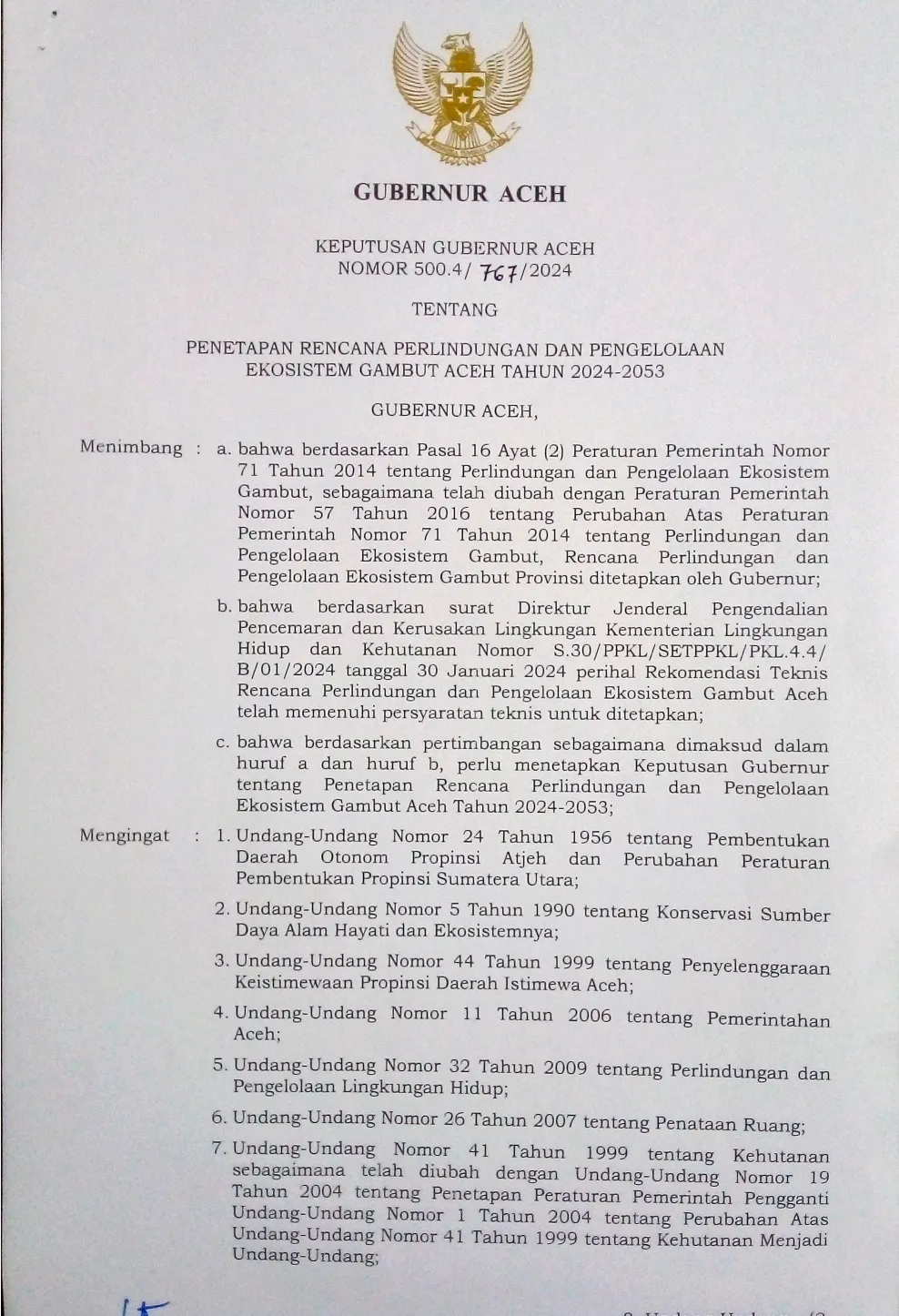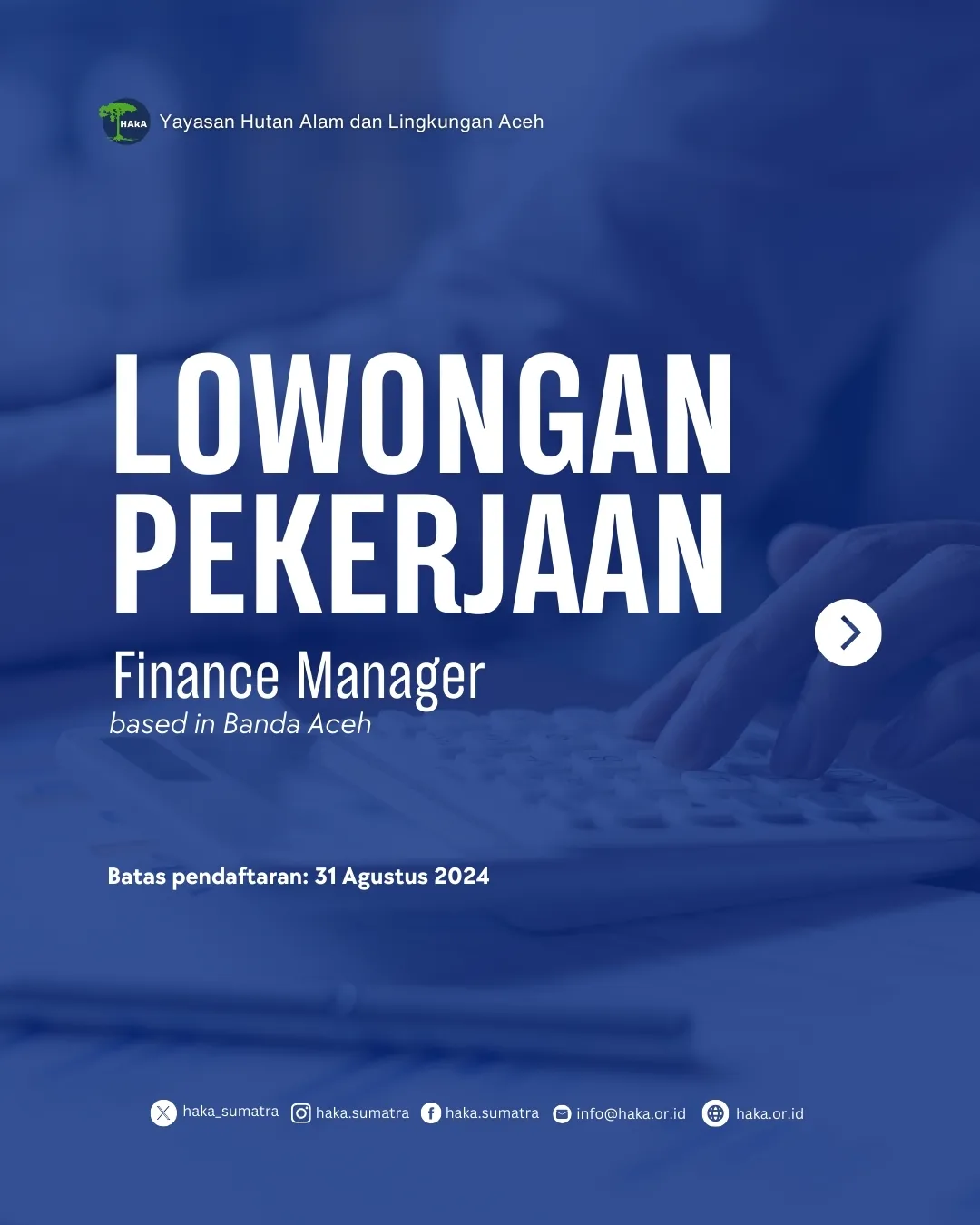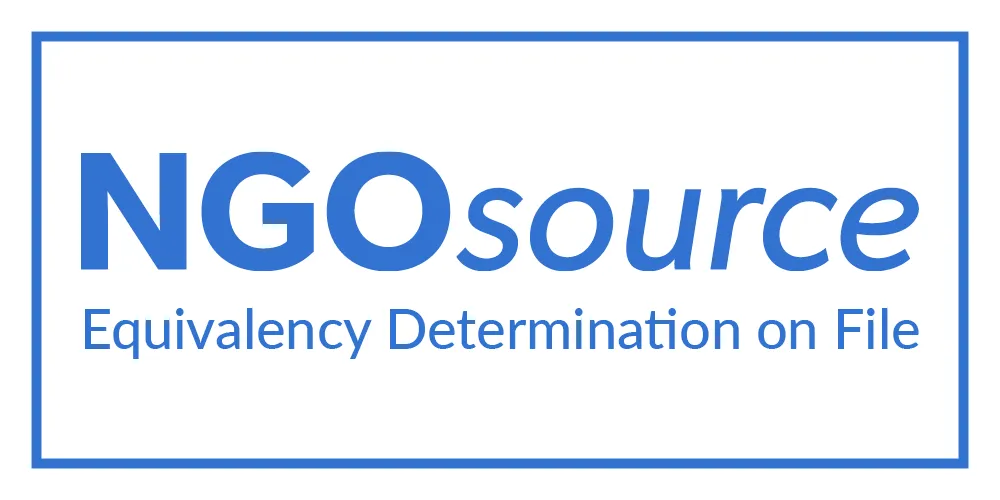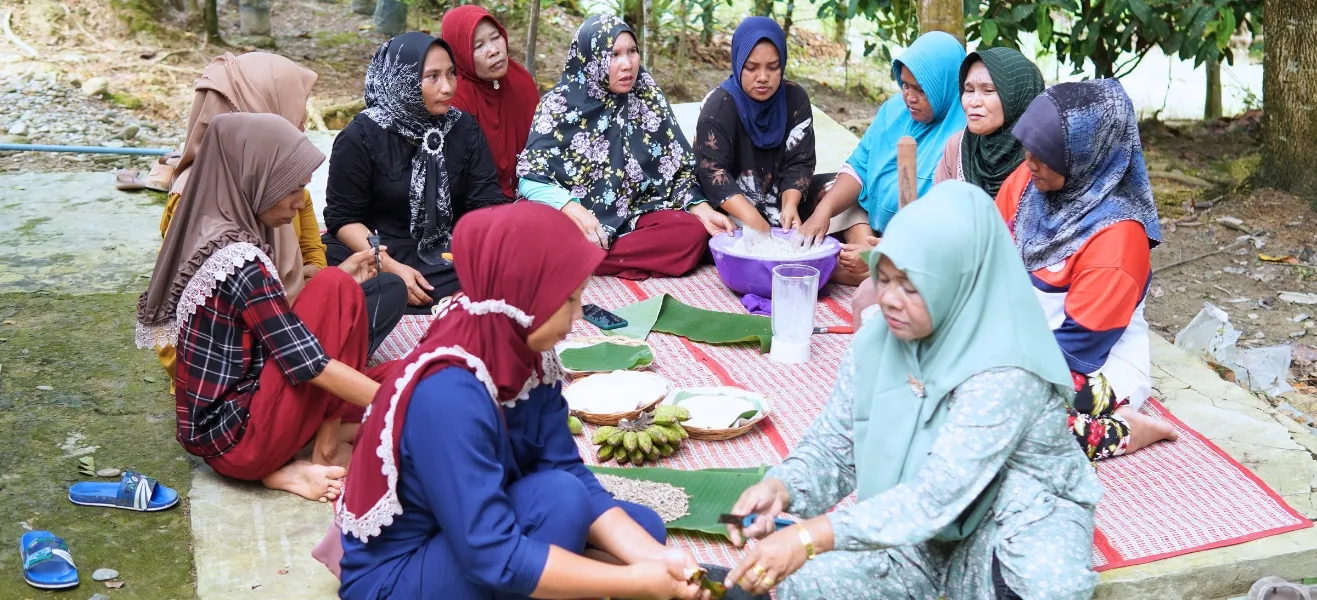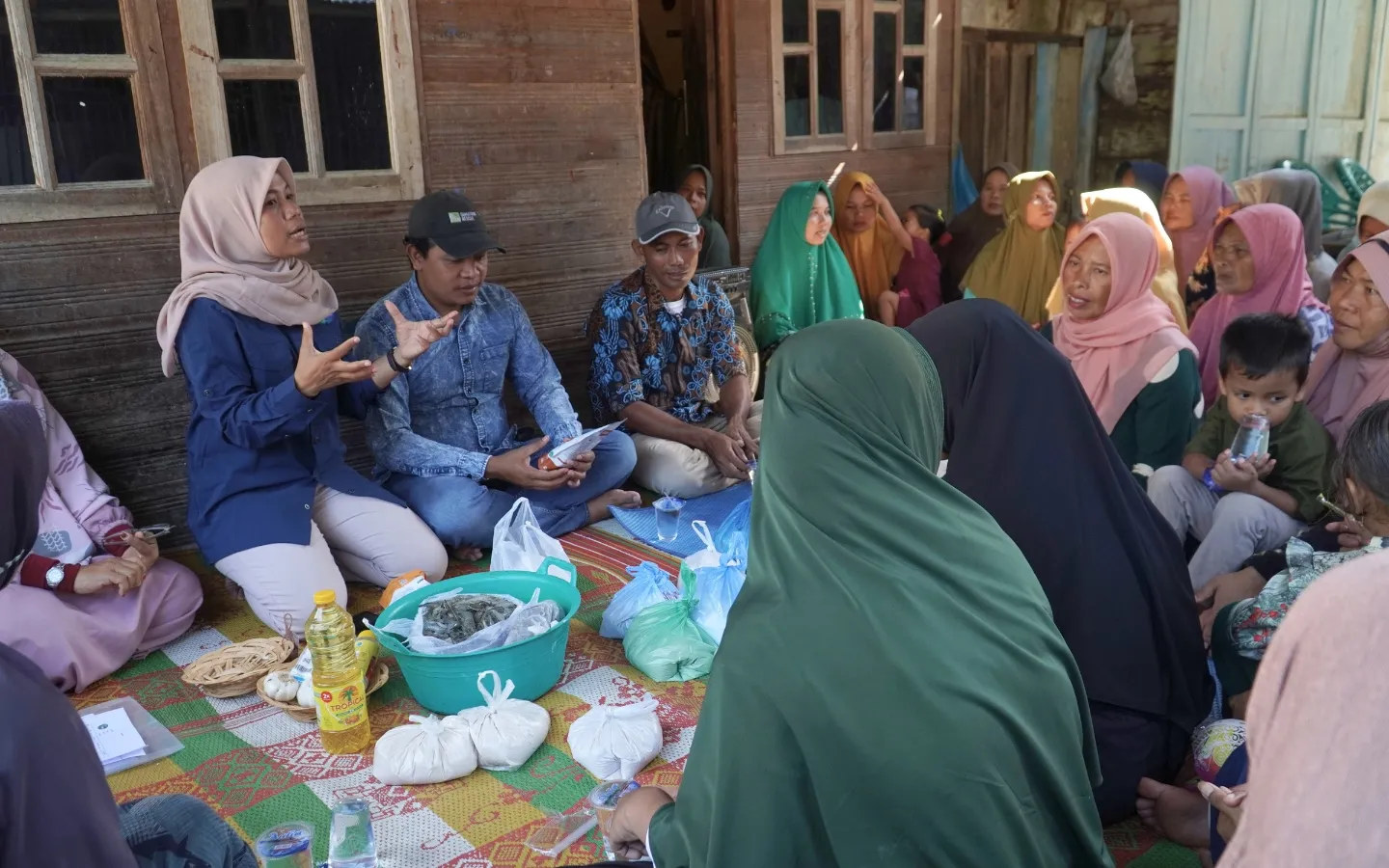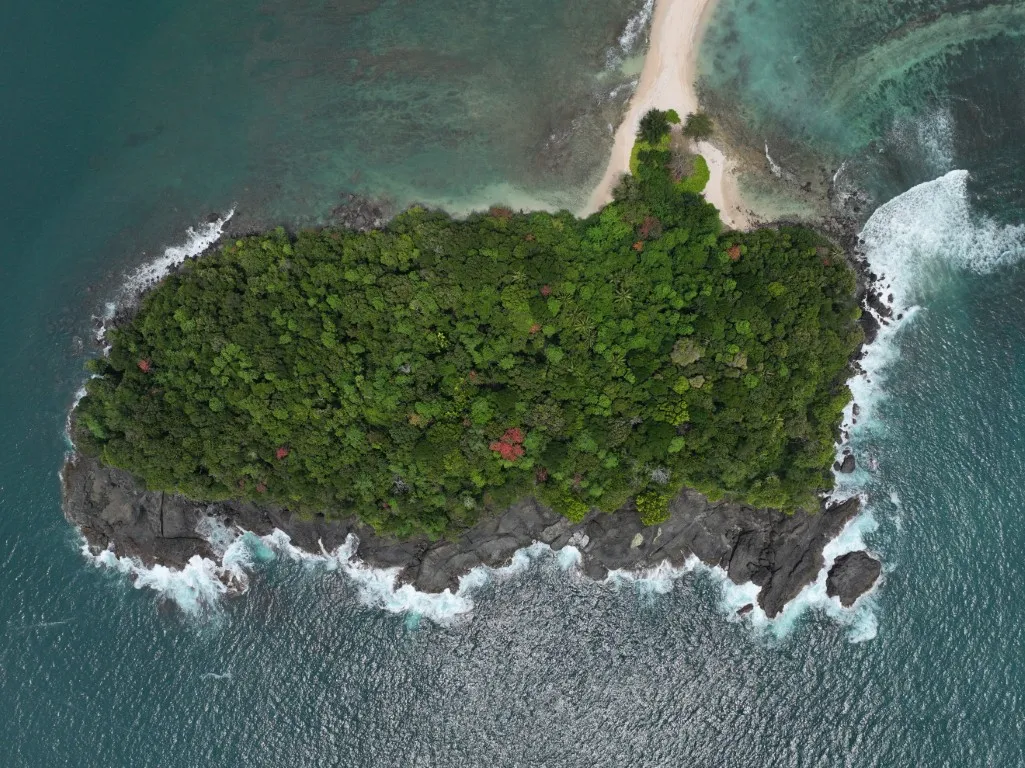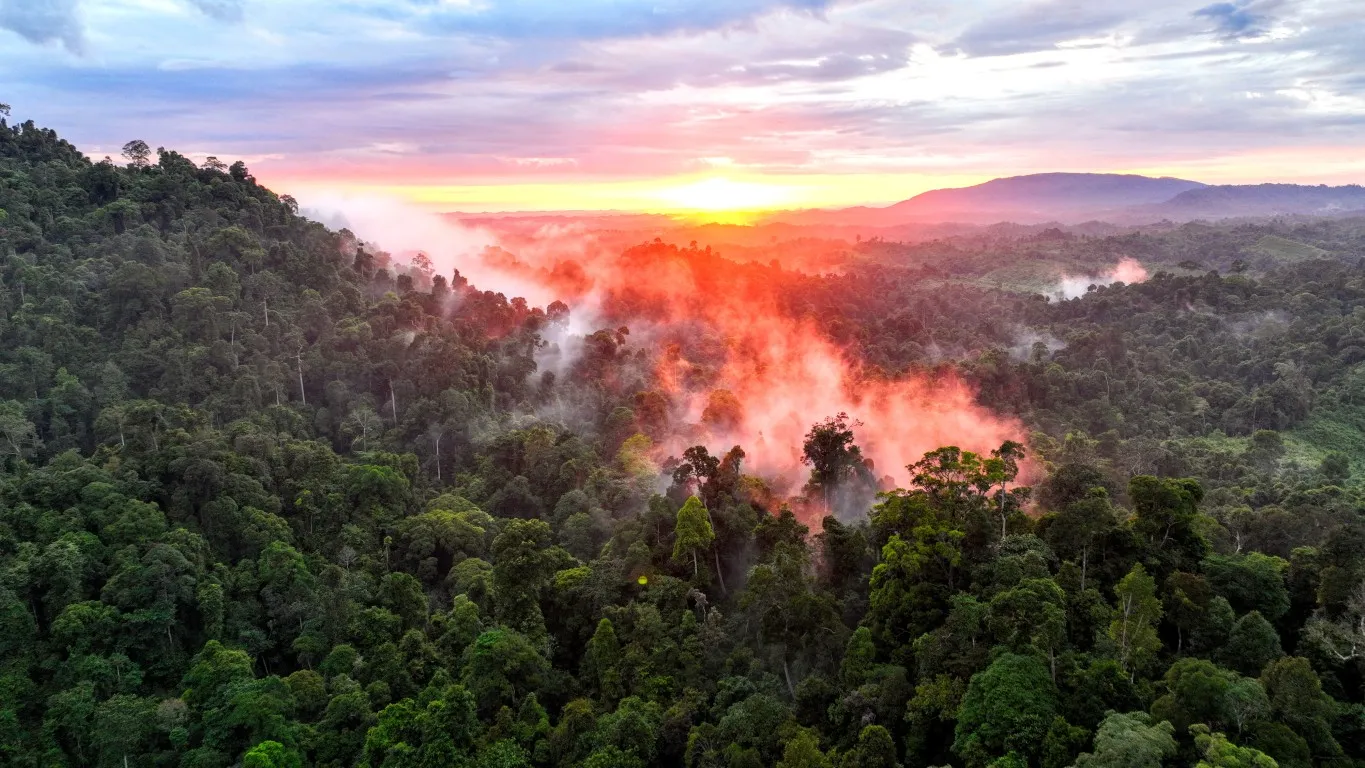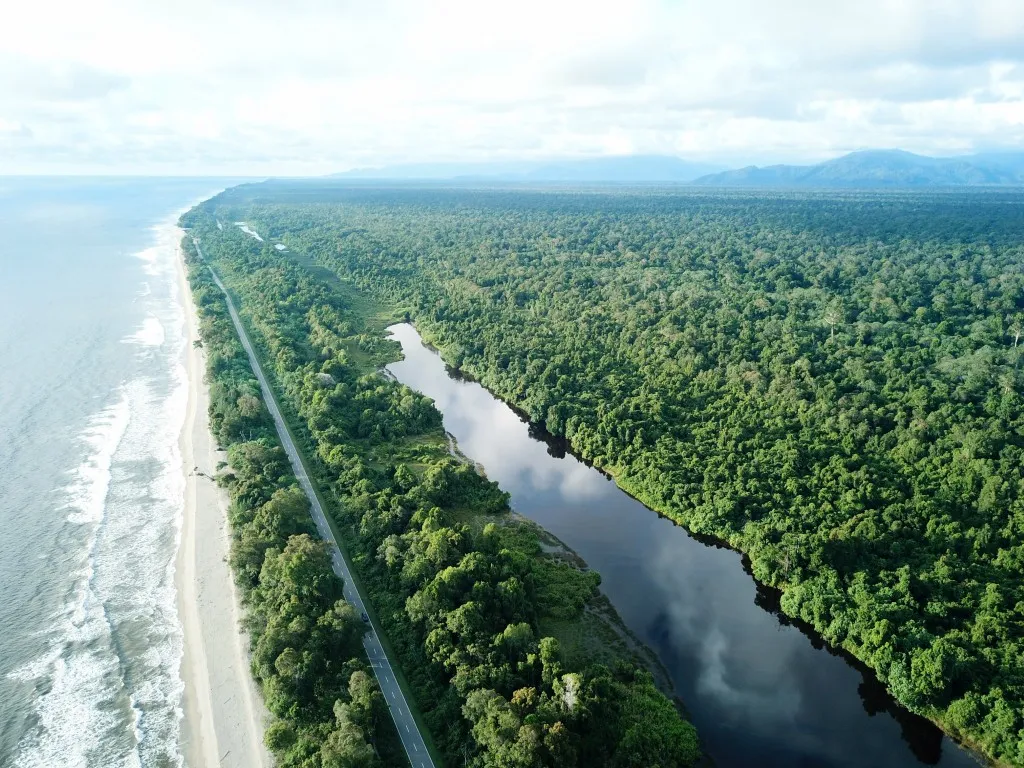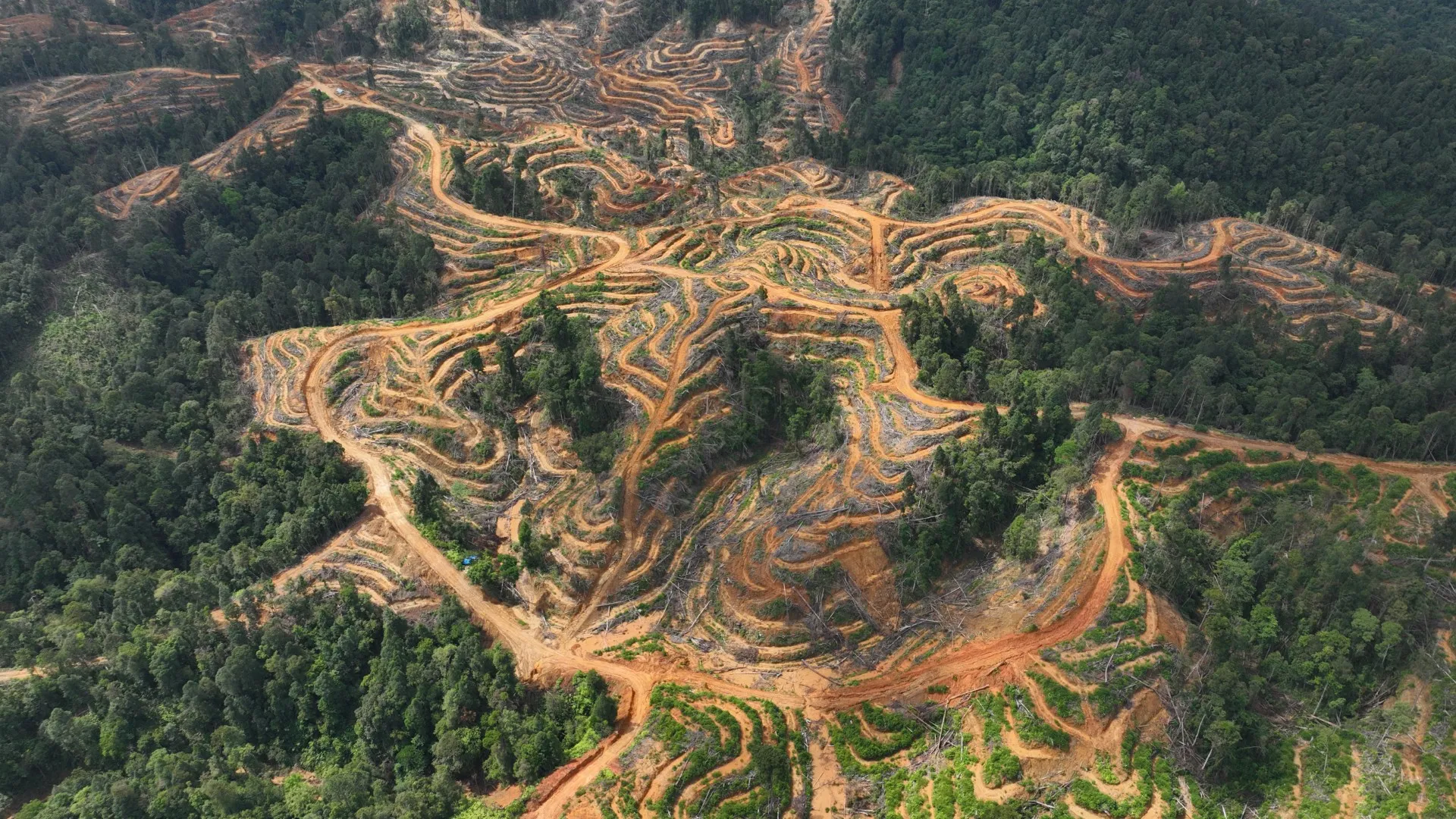On the Ratification of the Boundary of the Leuser Ecosystem Area in Aceh Province.
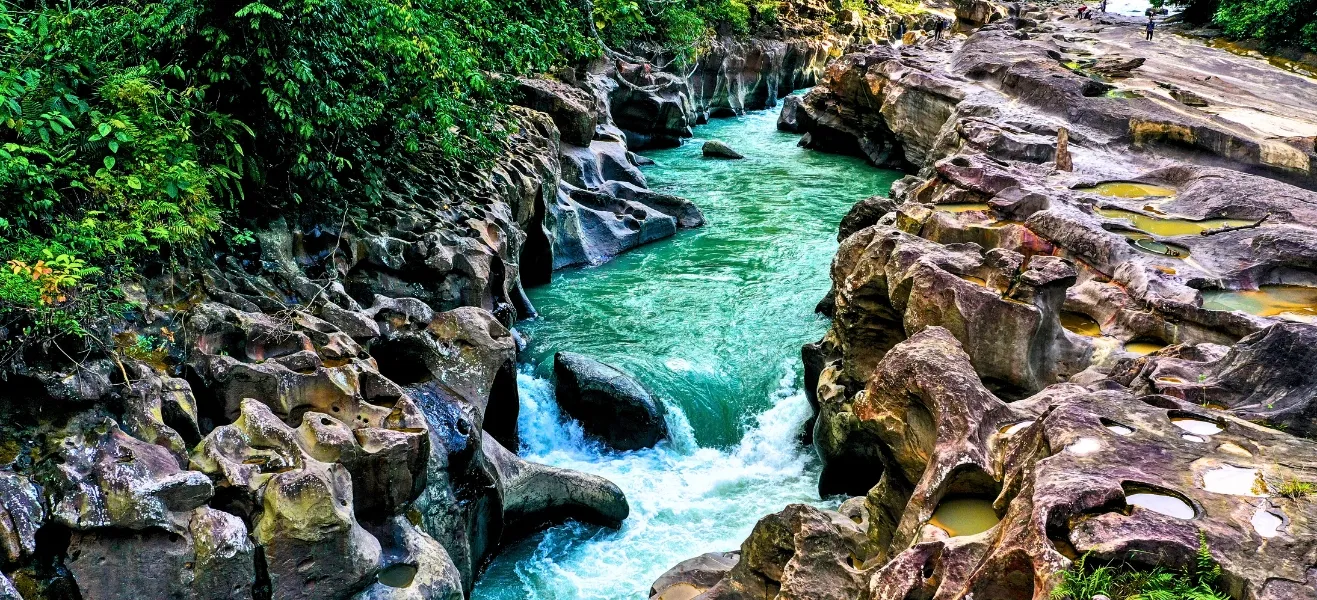
Source: Mongabay.co.id
- Farwiza Farhan, a woman activist and conservationist of the Leuser Forest in Aceh, received the 2024 Ramon Magsasay Award in the Emergent Leadership category, announced live from Manila, Philippines on August 31, 2024. which was announced live from Manila, Philippines on August 31, 2024.
- For Farwiza, this award is not only for her personally but also for the people who are fighting together to protect and save the Leuser forest. For him, the award is also a recognition of his broader work.
- In her work, Farwiza involves women in various lines. HAkA’s programs for and with women are effective and motivating. Women receive paralegal and citizen journalism training, engage in micro-entrepreneurship, and are organized into forest guard groups. Women lead forest patrols to monitor poaching and illegal logging. These women are supported by men who are also trained in the same way.
- On August 31, the Ramon Magsaysay Award Foundation announced five awardees from five countries. Besides Farwiza Farhan from Indonesia, there is Nguyen Thi Ngoc Phuong from Vietnam, then Miyazaki Hayao from Japan, and Bhutanese Karma Phuntsho. The award recipient from Thailand to the organization, Rural Doctors Movement (RDM), is a combination of the Rural Doctor Society (RDS) and the Rural Doctor Foundation (RDF).
Farwiza Farhan was shocked when she got the news that she was the recipient of the 2024 Ramon Magsaysay Award in theEmergent Leadership category. When she received the call, she was in the office. Without realizing it, she was moved to tears.
“Honestly I ‘m very shocked and surprised… It’s confused and mixed, my heart is so full, very touch and could not believe I’ve just heard. Did I dream this?” she said in an interview with Mongabay on August 29.
This Aceh-born woman has received several international awards for her dedication to saving and preserving the Leuser Ecosystem in Aceh with her organization, Yayasan Hutan, Alam dan Lingkungan Aceh (HakA).
These include the 2022 National Geographic Wayfinder Award, the 2021 Pritzker Emerging Environmental Genius Award, the 2021 TED Fellow, the 2017 Future for Nature Award, and the 2016 Whitley Award. In 2022, he was named TIME 100 Next 2022 by TIME.
This year, he also won the ‘Asian Nobel Prize’.
For Farwiza, this award is not only for her personally but also for the people who are fighting together to protect and save the Leuser forest. For her, this award is also a recognition of broader work.
“I’m just a small part of this huge movement. This is something that should be celebrated together. This is not my award but a joint award for friends on the ground, friends at the site level, joint coalitions.”
The Magsaysay Foundation considers Farwiza to have a deep understanding of the important relationship between nature and humanity. Her commitment to social justice and civic responsibility through her dedication to forests, forest communities, and campaigning for greater awareness of the need to protect the rich and endangered heart and lungs of nature in Indonesia and Asia.
Born in Aceh in 1986, Farwiza fell in love with the beauty of nature as a child, which led her to study marine biology and conservation. But the destruction of nature continued, which made her not sit idly by.
The environmental actions of this graduate of the Cultural Anthropology and Development Studies doctoral program at Radboud University Nijmegen, Netherlands, began when he joined the Leuser Ecosystem Management Agency (BPKEL), an institution established by the Aceh government to manage the Leuser ecosystem. At that time, he had just completed a master’s program in environmental management from the University of Queensland, Australia.
The Leuser Ecosystem, despite being a UNESCO World Heritage Site in 2004 and a protected area in 2008, continues to face threats from deforestation, infrastructure and commercialization. Conditions worsen when law enforcement for violators is weak.
Along the way, BPKEL was disbanded in 2012. Farwiza and some of her former BPKEL colleagues did not want to give up on protecting the Leuser ecosystem. They formed HAkA, which strives to maintain and preserve Leuser forests in 13 districts and cities in Aceh, Sumatra, with an area of around 2.25 million hectares. He was appointed as the chairman.
Since its establishment, HAkA’s successes have included co-sponsoring a court ruling imposing a US$26 million fine on a palm oil company that burned forests in the Leuser ecosystem. The money was used by the government to rehabilitate the damaged land. Another success was stopping the construction of a hydroelectric dam that threatened elephant habitat.
Another important, though less visible, action of HAkA is to mobilize the people of Aceh to protect the environment. HAkA does this by informing communities about the importance of the Leuser ecosystem by including it in the curriculum of local schools and universities.
HAkA also uses geographic information systems and other forest monitoring tools to help local governments, communities and universities monitor Aceh’s forest areas in real time.
The foundation also promotes community-based sustainable forest management to ensure better forest management.
It was not easy for Farwiza to work in Aceh, which is known as a conservative Islamic region. She often received discriminatory treatment.
“For example, comments to me about hijab and clothes. When I go to an EIA (environmental impact assessment) meeting, we’re not talking about the thousands of hectares that will be converted and cut down, they ask, where’s my headscarf, why does it show my hair? That pisses me off.”
Such things are repeated, including when he was included in the TIME 100 Next 2022, Farwiza faced this challenge strongly to remain herself and continue to take action to preserve the forest.
He realized that change doesn’t happen in one day. Patience is one of her recipes for dealing with this pressure.
“Opening up and fighting patriarchy I think sometimes [needs to be] fought with gentleness and sincerity. We try to see their perspective, listen and build bridges,” she said.
Farwiza feels lucky to be surrounded by people who support her, including her family.
“I am in a family where I can be myself. When I didn’t wear the hijab, there were no questions, even when I wasn’t married. [Now] even my husband supports me.”
She became stronger on this path and even supported other women to be themselves.
The importance of women’s role in nature conservation
In her work, Farwiza involves women in various lines. HAkA’s programs for and with women are effective and motivating. Women are involved in paralegal and citizen journalism training, engaged in micro-entrepreneurship, and organized in forest guardian groups.
Women lead forest patrols to monitor poaching and illegal logging. The women are supported by men who are also trained in the same way.
According to Farwiza, the role of women in Aceh is very strong, but often minimized. In fact, she said, culturally, women work harder.
Similarly, when it comes to work related to forest conservation, women can play a role in all lines, including patrolling the forest.
“You can imagine them patrolling for days in the forest, carrying bags, heavy, you would think that physically women can’t do that. The reality is not like that, women have a way of taking an important role in how this process can be more inclusive,” she said.
Conservation, he said, needs to be a more inclusive effort and invite people at the local level who actually understand more about conservation values. They are the ones who actually experience directly when environmental damage occurs.
Back then, when HAkA was just established, Farwiza was the only woman. Slowly, the number continues to grow.
“We don’t see the requirement to be male. The process extends to the community, which we also strengthen. Consciously, we do these movements, for example, making legal training specifically for mothers. The goal is to make their participation stronger.”
Together with HAkA, he will continue to work to preserve the Leuser forest.
What are the plans for the future? “We want to build a conservation school in Leuser. We are still researching and looking for forms of fundraising and others,” said the owner of many hobbies from trekking, trail running, scuba diving, freediving, to open water swimming .
Strengthen the civil society movement
Conservation and environmental work, Farwiza said, cannot be separated from the current social, economic and political conditions. She is saddened by the condition of Indonesia. Currently, she said, Indonesia is facing an extraordinary threat from the depravity of the political economy system, which will have a major impact on the environment.
“Hundreds of thousands of people have lost their land rights due to national strategic projects pushed by the government. That’s just people. We have not taken into account how many animals, how many plants, how many life functions are lost from the process,” he said.
It’s hard to rely on the government. Even so, Farwiza does not lose hope, improvements can still be made. Civil society, including the younger generation, can make changes by being more consolidated and stronger in collaboration.
“None of us can do everything on our own. None of us can do it 100% perfectly. But if we are solid, if we are pushing for the issues that matter, I believe that change can happen.”
2024 Magsaysay Award Winners
On August 31, the Ramon Magsaysay Award Foundation announced five awardees from five countries. Apart from Farwiza Farhan from Indonesia, there is Nguyen Thi Ngoc Phuong from Vietnam, then Miyazaki Hayao from Japan, Karma Phuntsho from Bhutan, and Thailand.
The awardee from Thailand is the Rural Doctors Movement (RDM) group, which is a combination of the Rural Doctor Society (RDS) and the Rural Doctor Foundation (RDF).
Bhutanese awardee Karma Phuntsho contributes to reconciling her country’s rich past with the difficulties and prospects of the present. She inspires the younger generation of Bhutanese to be proud of their heritage and confident in their future.
“Kharma inspires communities to look back even as they move forward,” said the Ramon Magsaysay Award Foundation in their official statement.
For Miyazaki Hayao, he was recognized for his lifelong commitment to the arts, specifically animation, to illuminate the human condition, especially praising his devotion to children as torchbearers of imagination. “To him, she passes on the light and spark of her spirit.”
The Magsaysay Award recipient from Thailand is a movement of rural doctors. They champion the rural poor, thus ensuring they are not left behind as the nation moves forward towards greater economic prosperity and modernization.
For Nguyen Thi Ngoc Phuong, recognized for her public service spirit and message of hope that she continues to spread to the Vietnamese people.
Phuong has a big mission in life, which is to seek justice for the victims of Agent Orange in the war era. She helped those who suffered in every way possible. Phuong and her colleagues found that people in areas sprayed with Agent Orange had suffered three times more birth defects than elsewhere.
He publicized this research and joined the Vietnam Association of Victims of Agent Orange Dioxin (VAVA). With more than 4,000 members, VAVA demands accountability for the damage caused by Agent Orange and provides assistance to victims.
Cheche L. Lazaro, Chairperson of the Ramon Magsaysay Award Foundation, said this year’s Ramon Magsaysay Award recipients remind us that the future is shaped by those who dare and dedicate themselves to turning this vision into reality.
“By addressing critical social challenges and pioneering innovative solutions in the community, they show us that creating positive change is not just a possibility, but a form of shared responsibility,” he said.
This year, the Ramon Magsaysay award is in its 66th year.
“As we celebrate the 66th anniversary of the Ramon Magsaysay Award, we recognize this year’s recipients whose perseverance in the face of adversity reflects the essence of the award,” said Susanna B. Afan, President of the Ramon Magsaysay Award Foundation.
For more than six decades, he said, the award has honored those who challenge the status quo with courageous integrity in the face of systemic injustice, transforming critical sectors through breakthrough solutions that drive society forward.
“Addressing pressing global issues with unwavering resilience.”
